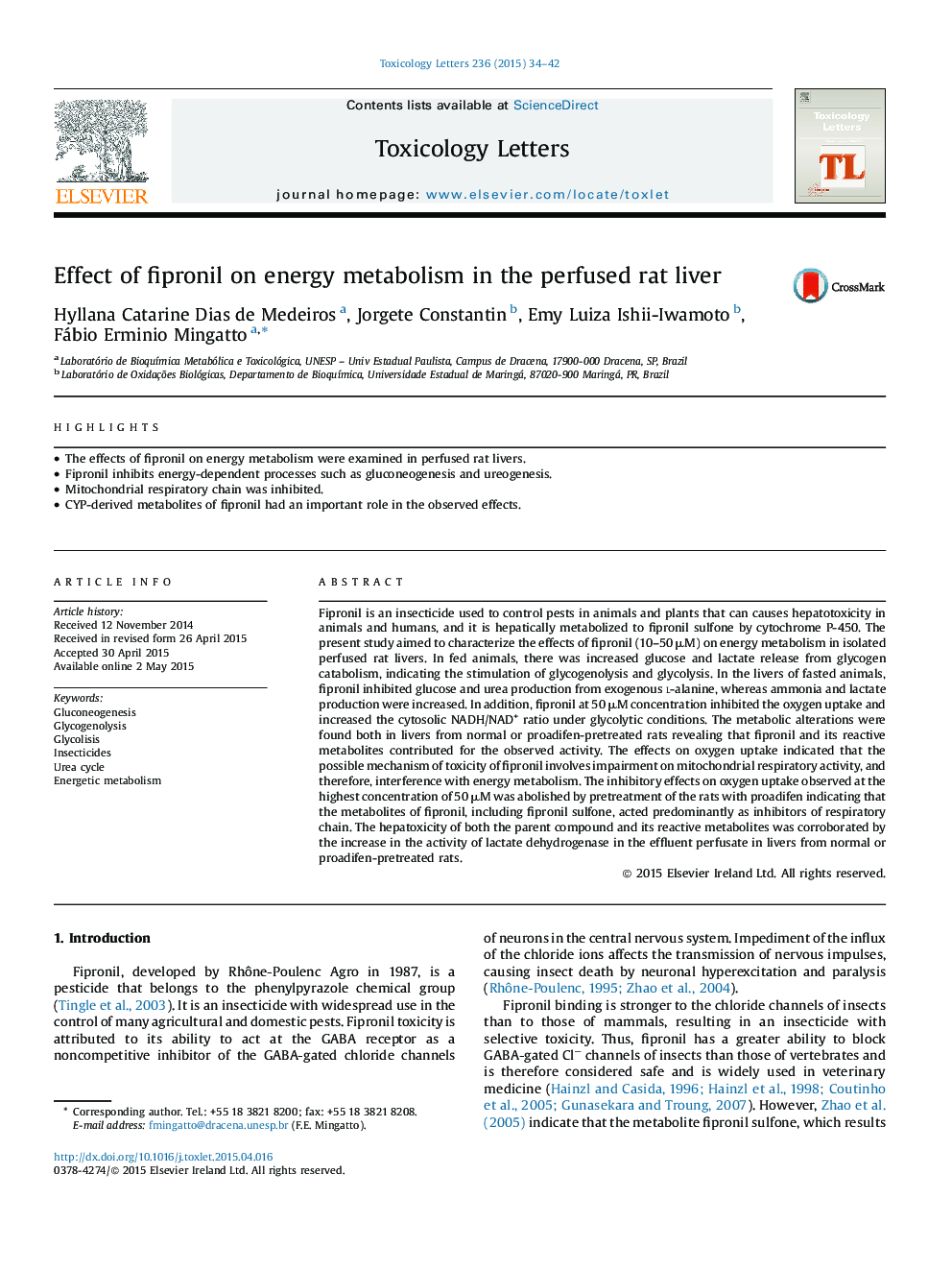| کد مقاله | کد نشریه | سال انتشار | مقاله انگلیسی | نسخه تمام متن |
|---|---|---|---|---|
| 2598701 | 1133148 | 2015 | 9 صفحه PDF | دانلود رایگان |
• The effects of fipronil on energy metabolism were examined in perfused rat livers.
• Fipronil inhibits energy-dependent processes such as gluconeogenesis and ureogenesis.
• Mitochondrial respiratory chain was inhibited.
• CYP-derived metabolites of fipronil had an important role in the observed effects.
Fipronil is an insecticide used to control pests in animals and plants that can causes hepatotoxicity in animals and humans, and it is hepatically metabolized to fipronil sulfone by cytochrome P-450. The present study aimed to characterize the effects of fipronil (10–50 μM) on energy metabolism in isolated perfused rat livers. In fed animals, there was increased glucose and lactate release from glycogen catabolism, indicating the stimulation of glycogenolysis and glycolysis. In the livers of fasted animals, fipronil inhibited glucose and urea production from exogenous l-alanine, whereas ammonia and lactate production were increased. In addition, fipronil at 50 μM concentration inhibited the oxygen uptake and increased the cytosolic NADH/NAD+ ratio under glycolytic conditions. The metabolic alterations were found both in livers from normal or proadifen-pretreated rats revealing that fipronil and its reactive metabolites contributed for the observed activity. The effects on oxygen uptake indicated that the possible mechanism of toxicity of fipronil involves impairment on mitochondrial respiratory activity, and therefore, interference with energy metabolism. The inhibitory effects on oxygen uptake observed at the highest concentration of 50 μM was abolished by pretreatment of the rats with proadifen indicating that the metabolites of fipronil, including fipronil sulfone, acted predominantly as inhibitors of respiratory chain. The hepatoxicity of both the parent compound and its reactive metabolites was corroborated by the increase in the activity of lactate dehydrogenase in the effluent perfusate in livers from normal or proadifen-pretreated rats.
Journal: Toxicology Letters - Volume 236, Issue 1, 2 July 2015, Pages 34–42
